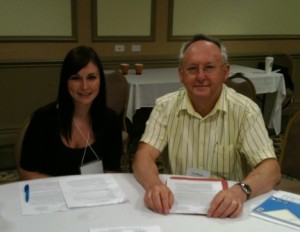Closing Date for Applications: 25th May 2012
This is an exciting opportunity available to postgraduate and postdoctoral researchers* within the plant, microbial and environmental science disciplines, or those with an interest in these fields.
Building on last year’s success, Syngenta, the world’s largest agribusiness company, are again hosting a Plant, Microbial and Environmental sciences workshop, at their world-class Jealott’s Hill research facility as part of the wider Biotechnology YES programme.
We are particularly keen to attract teams from the plant, microbial and environmental sciences to this high profile workshop that will provide a unique opportunity for the participants to spend time at a world-class research facility, with the chance to have a look around and meet world-leading scientists. The workshop will have an emphasis on challenges such as:
- food security and production in a sustainable environment and using lower levels of inputs such as water, phosphorus and nitrogen;
- the effects of climate change on food production;
- the effects of global biodiversity collapse on ecosystem services;
- the production of liquid fuels without impacting on the environment, more effective strategies to control organisms such as crop pests, pathogenic bacteria and disease;
- making technology and marketing concepts to integrate crop protection with seeds more attractive to growers.
YES is an innovative competition aimed at raising awareness of the commercialisation of bioscience research. It is co-organised by the Biotechnology & Biological Sciences Research Council (BBSRC) and the University of Nottingham Institute for Enterprise & Innovation (UNIEI). As part of the wider national YES programme, we are also currently encouraging applications from teams of bioscientists who wish to enter the 2012 Biotechnology YES and Environment YES competitions.
Entrants form imaginary companies and bid for funding to commercialise their ideas. Through 3-day workshops taking place across the UK this autumn, participants receive training from entrepreneurs, patent lawyers and industry representatives in the business skills necessary to recognise, protect and harness the commercial potential of scientific research outputs.
The culmination of the competition is the preparation and presentation, by each team, of a hypothetical business plan for a new start-up company. The competition is therefore fully in line with the government’s objective of encouraging economic and social impact and the competition is endorsed by a number of bio-based industries through their sponsorship. In addition, the winning team of the national Biotechnology YES competition will receive a prize of £1000 and an invitation to the Rice Business Plan Competition in the United States.
Since its launch seventeen years ago, Biotechnology YES has provided entrepreneurial business training for over 3000 researchers from across the UK. In 2010, an independent review of the scheme highlighted that many former participants found YES to be influential in developing their careers, with several starting their own companies and many more becoming business professionals within the bioscience sector. (Review of Biotechnology YES).
The closing date for entries into this year’s competition is 25 May 2012.
More information may be found at the website: www.biotechnologyYES.co.uk or those interested in participating may wish to contact Tracey Hassall-Jones (tracey@biotechnologyyes.co.uk).







 That wasn’t me, it was Douglas Adams. Unlike Mr Adams, I’m not a big fan of the whooshing sound. I prefer my deadlines neatly pinned down.
That wasn’t me, it was Douglas Adams. Unlike Mr Adams, I’m not a big fan of the whooshing sound. I prefer my deadlines neatly pinned down.  The Natural Environment White Paper is a bold and ambitious statement outlining the Government’s vision for the natural environment over the next 50 years, backed up with practical action to deliver that ambition.
The Natural Environment White Paper is a bold and ambitious statement outlining the Government’s vision for the natural environment over the next 50 years, backed up with practical action to deliver that ambition.










 New weight change BU paper
New weight change BU paper One week to go! | The 16th Annual Postgraduate Research Conference
One week to go! | The 16th Annual Postgraduate Research Conference Geography and Environmental Studies academics – would you like to get more involved in preparing our next REF submission?
Geography and Environmental Studies academics – would you like to get more involved in preparing our next REF submission? Congratulations to three former BU staff
Congratulations to three former BU staff Applications are now open for 2025 ESRC Postdoctoral Fellowships!
Applications are now open for 2025 ESRC Postdoctoral Fellowships! Horizon Europe – ERC CoG and MSCA SE webinars
Horizon Europe – ERC CoG and MSCA SE webinars ERC grants – series of webinars
ERC grants – series of webinars MaGMap: Mass Grave Mapping
MaGMap: Mass Grave Mapping Last reminder – MSCA Postdoctoral Fellowships 2024 internal deadline next week
Last reminder – MSCA Postdoctoral Fellowships 2024 internal deadline next week